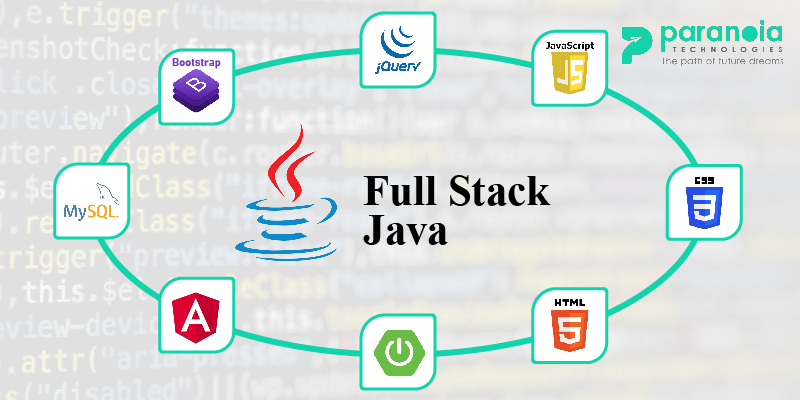Java Full Stack Development refers to the development of both front-end (client-side) and back-end (server-side) parts of a web application. This involves using Java programming language for server-side development, along with front-end technologies like HTML, CSS, JavaScript, and frameworks like Angular.
This Java Full Stack Developer course is designed to introduce you to front-end, middleware, and back-end Java web developer technologies. You will learn to build an end-to-end application, test and deploy code, store data using MongoDB, and much more.

Best J2EE Certificate Training in Trivandrum
J2EE Certification training course from Paranoia Technologies provides the best online J2EE classes for the students delivered by skilled experts. The J2EE certification online training offers in-depth knowledge of basic and advanced concepts of J2EE and leading frameworks like spring, SOA, and Hibernate. The students will also get expertise in different JAVA concepts like Java OOPS, Java loops, Java thread, web services, Java array, Java function, Java collection, and Java servlets using real-time training, case studies, and hands-on approaches.
Why Choose J2EE Training?
The course modules of J2EE online training are curated by professionals who are proficient in J2EE technologies. he case studies, theoretical and practical implementations, real-life industry examples help the students to get a detailed understanding of the J2EE concepts quickly.